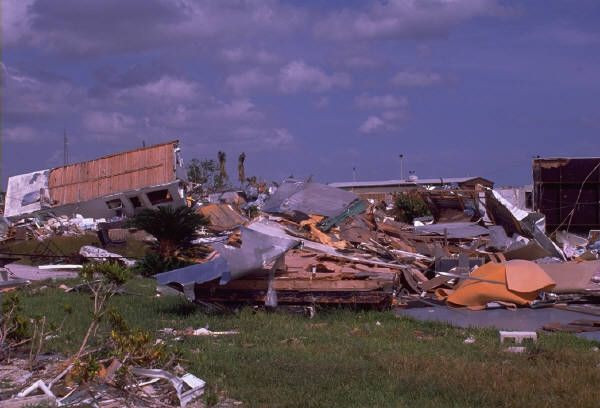Hurricanes May Cause Long-term Harm To Your Newborn

According to a new study, living in a hurricane zone or a major tropical storm region during pregnancy can elevate abnormal health conditions at birth.
Led by Janet Currie, lead researcher from Princeton’s Henry Putnam Professor of Economics and Public Affairs at the Woodrow Wilson Schoolof Public Health and International Affairs and director of the Center for Health and Wellbeing, and Maya Rossin-Slater, a doctoral candidate in the Department of Economics at Columbia University, the study uncovers groundbreaking information on ways to measure the impact of pre-birth stress on newborn babies.
The study included data on eight hurricanes and tropical storms that hit several parts of Texas between the years of 1996-2008 which caused more than $10 million in damages. Mothers who lived around 30 kilometers of a hurricane during the third trimester of pregnancy had the risk of a newborn being born with abnormal conditions increased by 60 percent.
Currie and Rossin-Slater were able to determine that abnormal health conditions at birth were not linked to medical care or property damage caused by the storms or stress behavior associated with the storms. The potential cause of health problems has a lot to do with the increase in stress hormones caused by the storm.
Meconium aspiration, which is when the newborn inhales a mixture of meconium and amniotic fluid in the lungs during the time of delivery, is a sign of distress, and other respiratory problems may lead to the baby needing to be placed on a ventilator can be treated successfully, but the study offers new insight for future research and general long-term health of a child born in stressful events, such as hurricanes.
One of the most important facts according to Currie is, although stress in pregnancy has some negative effect on the baby, it is more subtle than many studies have expressed in the past.
Anna Aizer an associate professor of economics and public policy at Brown University stated the research has raised the bar in terms of actually identifying the effects of stressful events on a newborn baby. Aizer was not involved in the study.
Aizer also believes this research can go far beyond natural disasters. Future studies can look at general stress levels of pregnant women and other social or environmental factors that may impact the health of newborns.
The study was circulated by the National Bureau of Economic Research.
Published by Medicaldaily.com



























